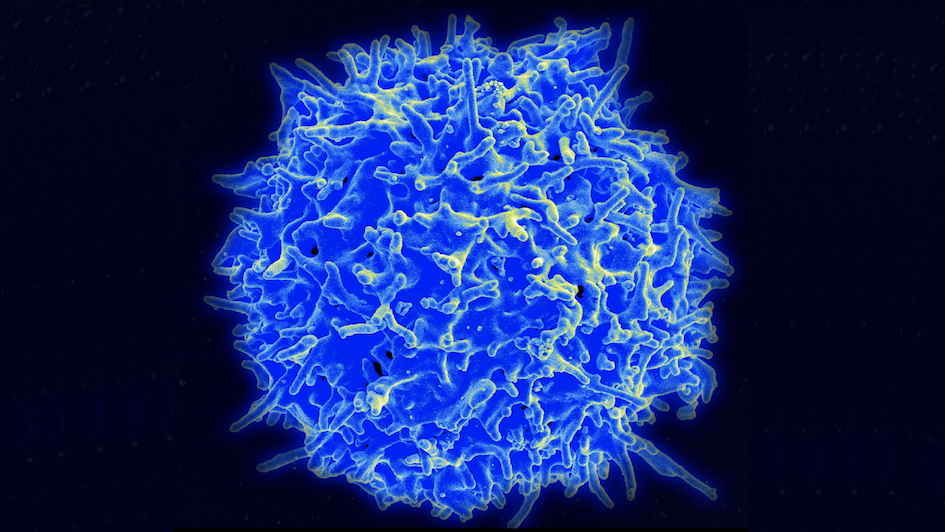
Scanning electron micrograph of a human T lymphocyte (also called a T cell) from the immune system of a healthy donor. Credit: NIAID
In the early 1960s, Professor Jaques Miller discovered the essential role of the thymus in our immune systems while working as a PhD student at The Institute of Cancer Research in London. It was a discovery that helped lay the foundation for all of modern immunology.
At the time, Professor Miller was researching leukaemia in mice, studying a cancer-causing virus called murine leukaemia virus.
Professor Miller found that removing the thymus could prevent leukaemia in mice which had previously been injected with the cancer-causing virus. He initially proposed that the virus might be multiplying within the thymus, and so he removed the thymus of new born mice, to test whether this would prevent the development of cancer following later viral infection.
A new insight
However, he found that these new born mice wasted and died following the removal of the thymus, regardless of whether they had been inoculated with the virus. When Professor Miller examined the blood of the mice, he found that they had a greater tendency for infection and a lower than usual concentration of a type of white blood cell called lymphocytes. Removing the thymus in adult mice had no detrimental immunological effect, suggesting the organ was essential specifically for the development of the immune system.
This was the first demonstration that the thymus had an immunological function, and led to further work by Professor Miller when he graduated from the ICR, where he also determined the function of different types of white blood cells, including T cell lymphocytes which are matured in the thymus.
The fundamental discovery of the key role that the thymus plays in the development of our immune system underpins our understanding of immunology, and has been essential to understanding diseases of the immune system like HIV/AIDS. It also helps us to understand how the body protects itself from cancer, offering the possibility to exploit these processes in new cancer therapies.
References
Miller (1961) Immunological function of the thymus, The Lancet, 278, Issue 7205, 748-49
doi:10.1016/S0140-6736(61)90693-6